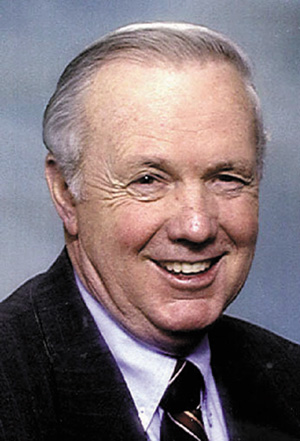No. 693 - CAN YOU READ BETWEEN THE LINES?
No. 693
Jim Davidson -- NEWSPAPER COLUMN
CAN YOU READ BETWEEN THE LINES?
One of the most embarrassing moments I ever had in high school happened one night during a basketball game. Back in those days I thought I was pretty good, 18-point average my senior year, that is until I went to college and went out for the team. It was here that I learned the meaning of the term “cut the squad,” and I did not make the cut. My embarrassing moment came when a player on the opposing team faked me so good while I was attempting to guard him that I landed on his back. At this moment someone up in the stands hollered, “Ride Him, Cowboy.” That was my nickname back then, one that I inherited from my father.
If you have played team sports at any time during your life, you know the best way to avoid an opposing player faking you out is to watch the spot where his “belt buckle” would be, or his mid-section, as this is the most stationary part of the body. I might add that after that embarrassing moment I got more proficient at guarding opposing players. The reason I have shared this is that I would like to relate this incident to a non-verbal skill that many people develop, while others never seem to get the hang of it.
This non-verbal skill is called “reading between the lines.” When another person is writing, talking, or using various other means of communication, it’s not always what they are saying but what they mean that matters most. Several months ago I was watching the confirmation hearings for new administration cabinet members and the announcer would often say, “If you could read between the lines, you would know what they are really thinking, and not just what you hear them saying,” Please allow me to ask you this question: Can you read between the lines, when you have communication exchanges with others?
This is really and truly a great skill to develop, and I am confident that many people would not be having so many financial problems if they had mastered the skill of reading between the lines. It’s not always oral or spoken communication that allows dishonest or unethical people to take advantage of others, but often it’s written communication that says one thing but means something else that causes problems. Someone sent me a very interesting story the other day that really illustrates this point.
It begins, “A man was being tailgated by a stressed-out woman on a busy street. Suddenly the light turned yellow just in front of him. He did the right thing, stopping at the crosswalk, even though he could have beaten the red light by accelerating through the intersection. The tailgating woman was furious and honked her horn, screaming in frustration, as she missed the chance to get through the intersection, dropping her cell phone and makeup.
As she was still in mid-rant, she heard a tap on her window and looked into the face of a very serious police officer. The officer ordered her to exit her car with her hands up. He took her to the police station where she was searched, fingerprinted, photographed and placed in a holding cell. After a couple of hours, a policeman approached the cell and opened the door. She was escorted back to the booking desk where the arresting officer was waiting with her personal effects. He said, “I’m very sorry for the mistake. You see, I pulled up behind your car while you were blowing your horn, flipping off the guy in front of you and cussing a blue streak at him. I noticed the ‘What Would Jesus Do’ bumper sticker, the ‘Choose Life’ license plate holder, The ‘Follow Me to Sunday School’ bumper sticker; naturally I assumed you had stolen the car.” Enough said!!
---
(EDITOR'S NOTE: Jim Davidson is a public speaker and syndicated columnist. You may contact him at 2 Bentley Drive, Conway, AR 72034. To support literacy, buy his book: “Learning, Earning & Giving Back.”)
